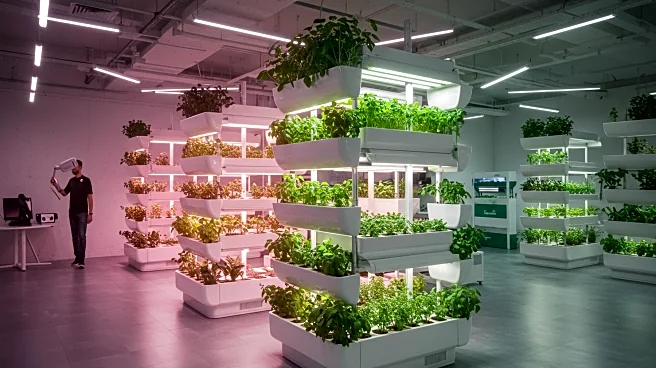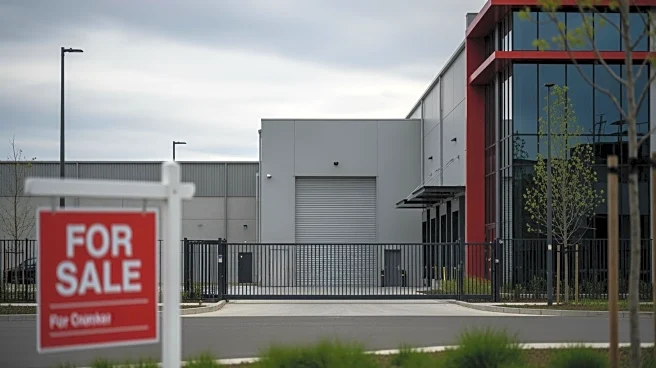What's Happening?
Dyson, a company known for its engineering prowess, is making significant strides in the agricultural sector with its innovative approach to vertical farming. At its Carrington facility in the UK, Dyson has developed a system that integrates rotating rigs, automation, and renewable energy to achieve yields 2.5 times higher than traditional farming methods. This system not only enhances productivity but also reduces environmental impact. The hybrid greenhouse model employed by Dyson combines natural sunlight with artificial inputs, optimizing growth conditions while minimizing energy consumption. Additionally, Dyson's commitment to sustainability is evident in its use of rainwater collection, anaerobic digesters for biogas production, and recycling of waste heat and CO2, all of which contribute to a closed-loop system that reduces emissions and resource dependency.
Why It's Important?
Dyson's advancements in vertical farming could have far-reaching implications for the agricultural industry, particularly in addressing the challenges of food security and environmental sustainability. By producing more food with fewer resources, Dyson's model offers a scalable solution to meet the demands of a growing global population. The integration of technology and sustainable practices sets a new standard for efficient and eco-friendly farming, potentially reducing the carbon footprint associated with traditional agriculture. This approach not only benefits the environment but also enhances economic viability by lowering operational costs and increasing productivity. As the world grapples with climate change and resource scarcity, Dyson's innovations could play a crucial role in shaping a more sustainable and resilient food system.
What's Next?
The success of Dyson's vertical farming model may inspire other companies and industries to adopt similar sustainable practices. As Dyson continues to refine its techniques and expand its operations, it could lead to broader adoption of vertical farming technologies worldwide. This shift could prompt policymakers to support and incentivize sustainable agricultural practices, further driving innovation in the sector. Additionally, the focus on regenerative agriculture and biodiversity restoration by Dyson could encourage a more holistic approach to farming, balancing productivity with ecological responsibility. The potential for collaboration between technology companies and agricultural stakeholders could accelerate the development of new solutions to global food challenges.
Beyond the Headlines
Dyson's approach to vertical farming highlights the intersection of technology and environmental stewardship, offering a glimpse into the future of agriculture. The emphasis on regenerative practices and biodiversity restoration underscores the importance of maintaining ecological balance while pursuing technological advancements. This model challenges traditional perceptions of farming, suggesting that innovation and sustainability can coexist to create a more resilient food system. As the industry evolves, ethical considerations around resource use, waste management, and environmental impact will become increasingly important, shaping the direction of future agricultural practices.









